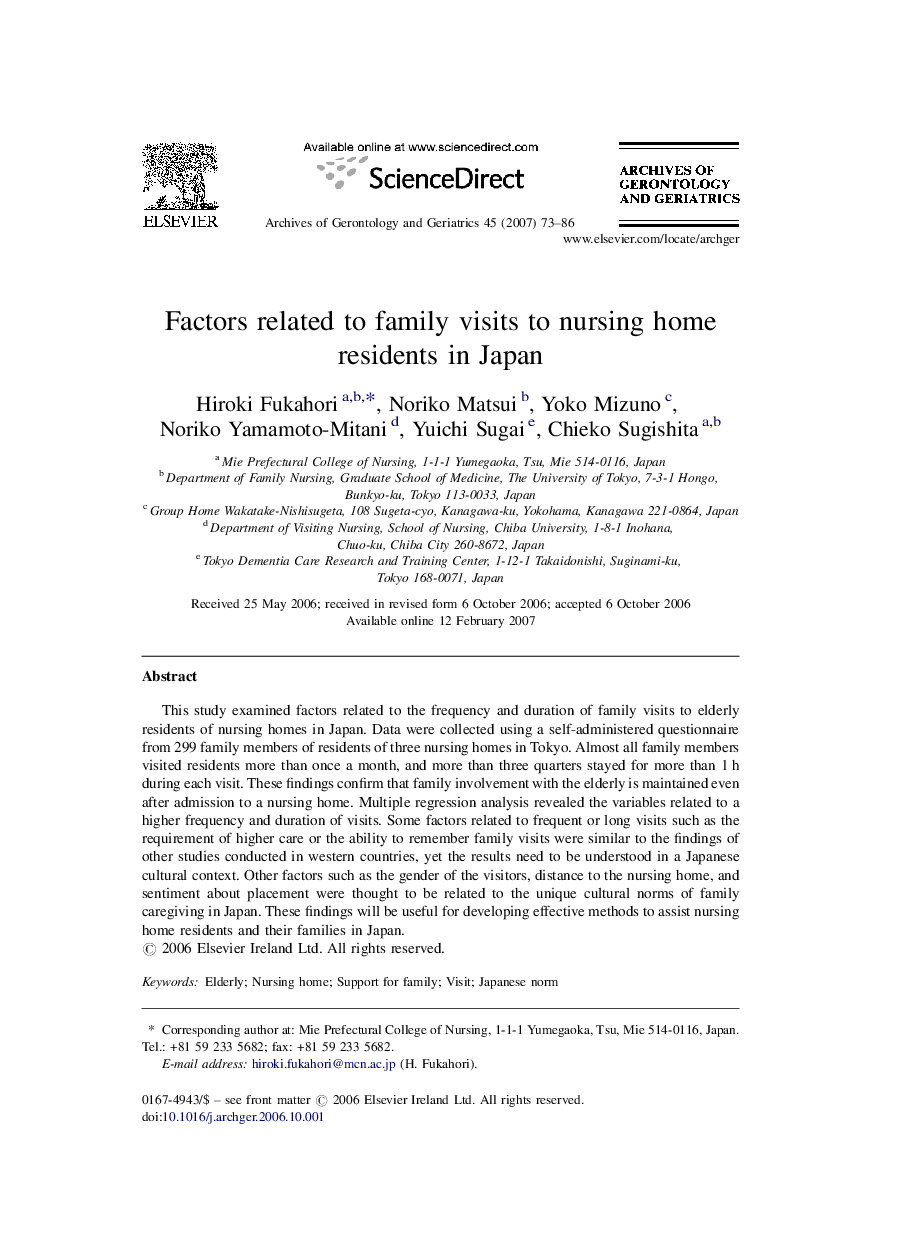| Article ID | Journal | Published Year | Pages | File Type |
|---|---|---|---|---|
| 1904345 | Archives of Gerontology and Geriatrics | 2007 | 14 Pages |
This study examined factors related to the frequency and duration of family visits to elderly residents of nursing homes in Japan. Data were collected using a self-administered questionnaire from 299 family members of residents of three nursing homes in Tokyo. Almost all family members visited residents more than once a month, and more than three quarters stayed for more than 1 h during each visit. These findings confirm that family involvement with the elderly is maintained even after admission to a nursing home. Multiple regression analysis revealed the variables related to a higher frequency and duration of visits. Some factors related to frequent or long visits such as the requirement of higher care or the ability to remember family visits were similar to the findings of other studies conducted in western countries, yet the results need to be understood in a Japanese cultural context. Other factors such as the gender of the visitors, distance to the nursing home, and sentiment about placement were thought to be related to the unique cultural norms of family caregiving in Japan. These findings will be useful for developing effective methods to assist nursing home residents and their families in Japan.
